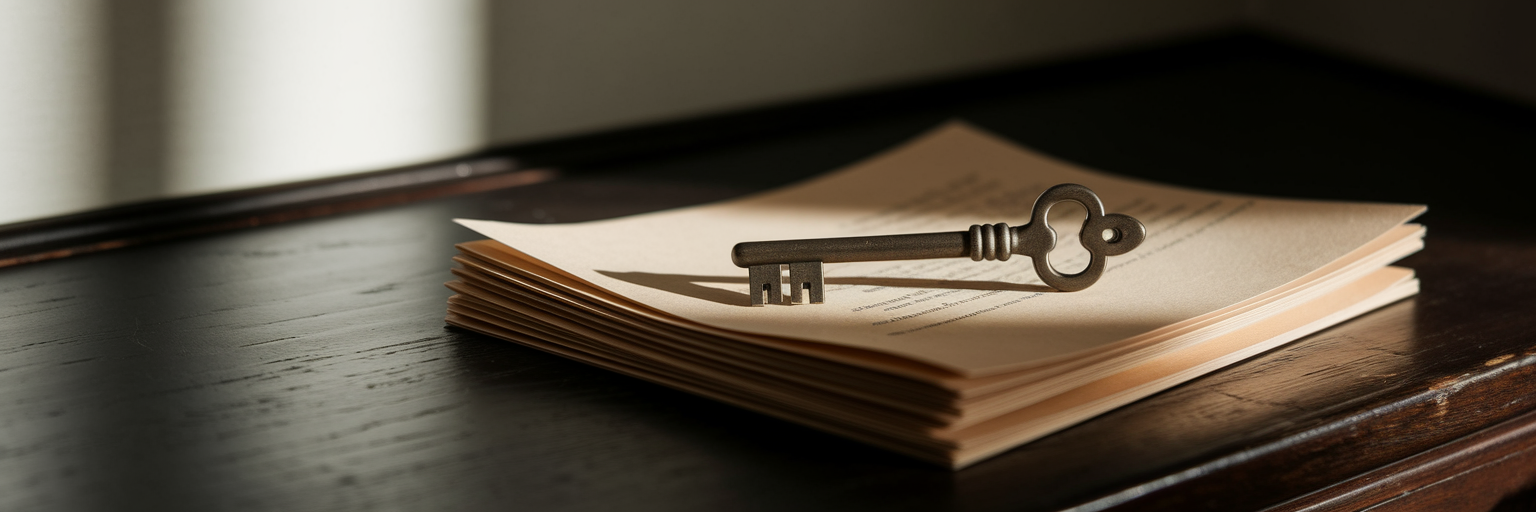A Guide to Notarizing Historic Home Closings in New Orleans

The Unique Demands of Historic Property Transactions
As Autumn 2025 settles over New Orleans, the allure of owning a piece of history in the Garden District or Mid-City is undeniable. The wrought-iron balconies and centuries-old oak trees tell a story, but so do the legal documents required to purchase them. Acquiring a historic home is not a standard transaction. The paperwork carries complexities that can catch unprepared buyers and sellers by surprise.
In Louisiana, the notary public holds a unique position. Unlike notaries in other states who primarily witness signatures, a Louisiana notary is a civil law notary. As the Law Library of Louisiana highlights, they are empowered to draft legal documents, including the Act of Sale itself. This distinction is critical when dealing with historic properties, where deeds often contain specific preservation clauses that dictate future renovations.
These clauses are not mere suggestions. They are legally binding commitments. This is why finding a specialized real estate notary in Metairie or elsewhere in the New Orleans area is not just a good idea, it's a necessity. An experienced professional ensures that the charm of your new home isn't overshadowed by unforeseen legal obligations down the road.
Understanding Preservation Rules and Local Regulations
The unique character of New Orleans' historic neighborhoods is protected by more than just goodwill. It's enforced by legal instruments known as preservation easements and historic covenants. Think of these as permanent rules attached to the property's deed. They can govern everything from the color you're allowed to paint your shutters to the type of windows you can install. These restrictions pass from owner to owner, ensuring the architectural integrity of the area for generations.
In New Orleans, the primary governing body is the Historic District Landmarks Commission (HDLC). This commission has authority over designated historic districts and landmarks, reviewing and approving proposed changes to properties within its jurisdiction. When you buy a home in an HDLC-controlled area, you are also buying into its regulations.
A notary's role in this process is to ensure absolute clarity. Before any documents are signed, both the buyer and seller must fully comprehend these binding clauses. An oversight here is not a minor mistake. It can lead to significant fines from the city or even legal orders to reverse unapproved work at your own expense. A qualified notary acts as your first line of defense, confirming that all parties understand the long-term responsibilities that come with owning a piece of local history.
Step-by-Step Compliance for a Valid Closing
A successful historic home closing in Louisiana depends on meticulous procedure. Each step is designed to create a legally sound transfer of property, protecting everyone involved. Here is what a compliant notarization process looks like:
- Thorough Identity Verification: This is the foundation of a valid notarization. All signers must be physically present before the notary with a valid, government-issued photo ID. There are no exceptions. As the National Notary Association reports, failing to require personal appearance is a leading cause of misconduct claims against notaries. This step prevents fraud and confirms the identities of all parties to the transaction.
- Meticulous Document Review: The notary must carefully review every page of the closing documents, especially the Act of Sale, mortgage agreements, and any attached riders. They check for completeness and accuracy, paying special attention to the property's legal description and any historic preservation clauses. This review ensures there are no blank spaces or ambiguities that could later be contested.
- Correct Notarial Certificate Execution: This is the official act of notarization. The notary completes the notarial certificate, affixes their official seal, and records the date and location of the signing, such as "New Orleans, LA." This precise execution is what transforms the document into a legally enforceable instrument. An error here could call the entire transaction into question.
- Diligent Record Keeping: Finally, the notary records the details of the notarization in their official journal. This log serves as a permanent, independent record of the transaction. Should any dispute arise in the future, the notary's journal provides impartial evidence that the closing was executed properly.
Choosing the Right Professional for Your Closing
When you need to notarize a real estate closing in New Orleans, especially for a historic property, you have several options. However, not all are created equal. A notary at a mail and copy shop can witness a simple signature but lacks the legal expertise for a complex closing. A general lawyer can handle the transaction, but their services often come at a premium and may not be focused on the specific nuances of Louisiana property law.
A specialized notary offers a focused and efficient alternative. For instance, an experienced professional with a law degree, like the one at JP Notary, combines legal knowledge with practical expertise in real estate transactions. With over seven years of experience and a deep understanding of the requirements for a Louisiana property law notary, JP Notary is equipped to handle the intricate details of historic home sales in areas from Old Jefferson to Mid-City.
This expertise is paired with convenience. Whether you need a notary in Kenner, Harahan, or a mobile notary services" href="https://www.jpnotary.com/mobile" target="_blank" rel="noopener">mobile notary in Uptown who can meet you at your home or office, the service is designed around your schedule. For a seamless and confident closing, you can book an appointment with JP Notary online at www.jpnotary.com or by calling 504-513-7333.
| Feature | Mail/Copy Shop Notary | General Lawyer | JP Notary (Specialized Notary) |
|---|---|---|---|
| Expertise in Historic Properties | None | Varies; may not be a focus | Specialized knowledge of local ordinances |
| Document Drafting (Civil Law) | Not authorized | Yes, but at a higher cost | Yes, with focused expertise |
| Cost-Effectiveness | Low (for simple acts) | High | Moderate and efficient |
| Convenience (Mobile Service) | No | Rarely | Yes, available in New Orleans & Jefferson Parish |
Why Accurate Notarization is Your Best Protection
A notarial error, such as an incorrect date or a missing signature, may seem small, but it can create a legal vulnerability that could be used to challenge the entire property transfer. An invalidated sale can lead to devastating financial loss and tie up your new home in legal battles for months or even years. The stakes are simply too high to leave to chance.
Proper notarization is not just a procedural formality. It is a critical investment in protecting your asset. By ensuring every document is correctly prepared, signed, and recorded, you create a solid legal foundation for your ownership. This is where the experience of a professional like JP Notary New Orleans becomes invaluable.
Working with a competent and detail-oriented notary provides peace of mind, confirming that all legal requirements have been met. From drafting the initial documents to executing the final signature, the comprehensive notary services we provide are designed to safeguard your transaction. Ultimately, accurate notarization is your best defense against future complications, allowing you to focus on enjoying your historic New Orleans home. Read what our clients say about our 5-star notary services.
Need Professional Notary Services?
Contact JP Notary for reliable, professional notary services in New Orleans.


